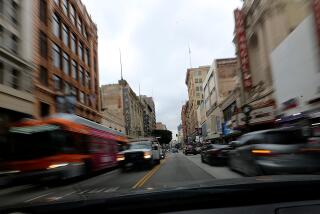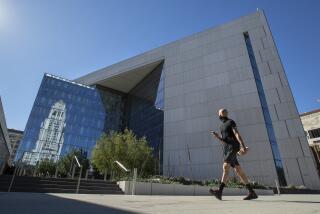LAPD closes backlog of untested rape kits
- Share via
After 2 1/2 years spent chipping away at a backlog of DNA evidence that had been collected in thousands of rape cases and then was ignored, Los Angeles officials Wednesday announced that all of the potentially crucial material had been analyzed.
“Today, we pledge to never let justice wait like this again,” Mayor Antonio Villaraigosa said at a City Hall news conference with LAPD Chief Charlie Beck and other elected officials. “For every sexual assault evidence kit, there is an individual — a mother, a daughter, a friend — who rightfully deserves justice. We recognize that there is still a lot of work to accomplish.”
In late 2008, under mounting pressure from victim advocacy groups, Beck’s predecessor William J. Bratton acknowledged that more than 6,000 pieces of DNA evidence had sat untouched in LAPD storage freezers — some for longer than a decade — as the department’s badly understaffed lab fell far behind on the workload. Further complicating the problem was the Los Angeles Police Department’s practice of leaving the decision of whether to test DNA material up to the detectives handling a case.
The so-called sexual assault kits contained samples of semen, blood, hair or other genetic material collected from victims’ bodies and crime scenes. Analysis of the material can help identify perpetrators by matching DNA to the genetic profiles of felons stored in law enforcement databases.
Bratton had pledged to eliminate the backlog and, going forward, said the department would test all incoming kits. He assigned Beck, then a deputy chief, to oversee the project. With the exact number of untested kits and the investigations to which they belonged unknown, dozens of detectives spent several days in the storage freezers and tallied 6,132 untested kits.
Amid the city’s worsening fiscal crisis, the endeavor to test the huge amount of evidence quickly became a financial quandary. Police officials cobbled together several million dollars in federal grants, public funds and private donations to cover the costs of outsourcing the testing to private labs. The mayor and police officials also pressed the City Council for permission to set aside funds to add more analysts to the LAPD’s lab despite a citywide hiring freeze.
Earlier this year, the LAPD received the last of the backlogged kits from private labs. But federal guidelines require an LAPD analyst to review the private lab’s work before each DNA profile is uploaded to the law-enforcement databases. At the time, 500 of the kits needed review and it took until now to complete them.
The effort to clear the backlog has paid dividends. Speaking Wednesday, City Controller Wendy Greuel alluded to about 1,000 matches between DNA profiles found in the rape kits and those stored in the databases. Beck clarified that in many of the cases, the person identified by the DNA match had already been convicted.
Beck said he did not know how many new identifications and arrests have been made because of the backlog testing, but put the total in the “dozens.”
The city is still several months away from closing the book on the backlog saga.
As it focused on dealing with the years’ worth of untested evidence, the department fell behind on testing for more recent cases. It has made progress on this front, and nearly all of the newer kits are now in some stage of the testing process, which takes between two and three months to complete, LAPD officials said.
The ultimate goal of city officials has been to add enough analysts to the LAPD’s in-house laboratory to enable it to handle almost all of the department’s DNA testing. The lab has nearly doubled in size to 78 people, city figures show, and needs to add another 20 people to reach the point of self-sufficiency.
“We are so grateful for all the work that was done and all the resources that have been dedicated to give those 6,000 victims what was due to them,” said Gail Abarbanel, director of the Rape Treatment Center in Santa Monica. “Now, the issue is what will be done for the women we see come through our doors every day? Will their evidence be tested as quickly?”
More to Read
Sign up for Essential California
The most important California stories and recommendations in your inbox every morning.
You may occasionally receive promotional content from the Los Angeles Times.











